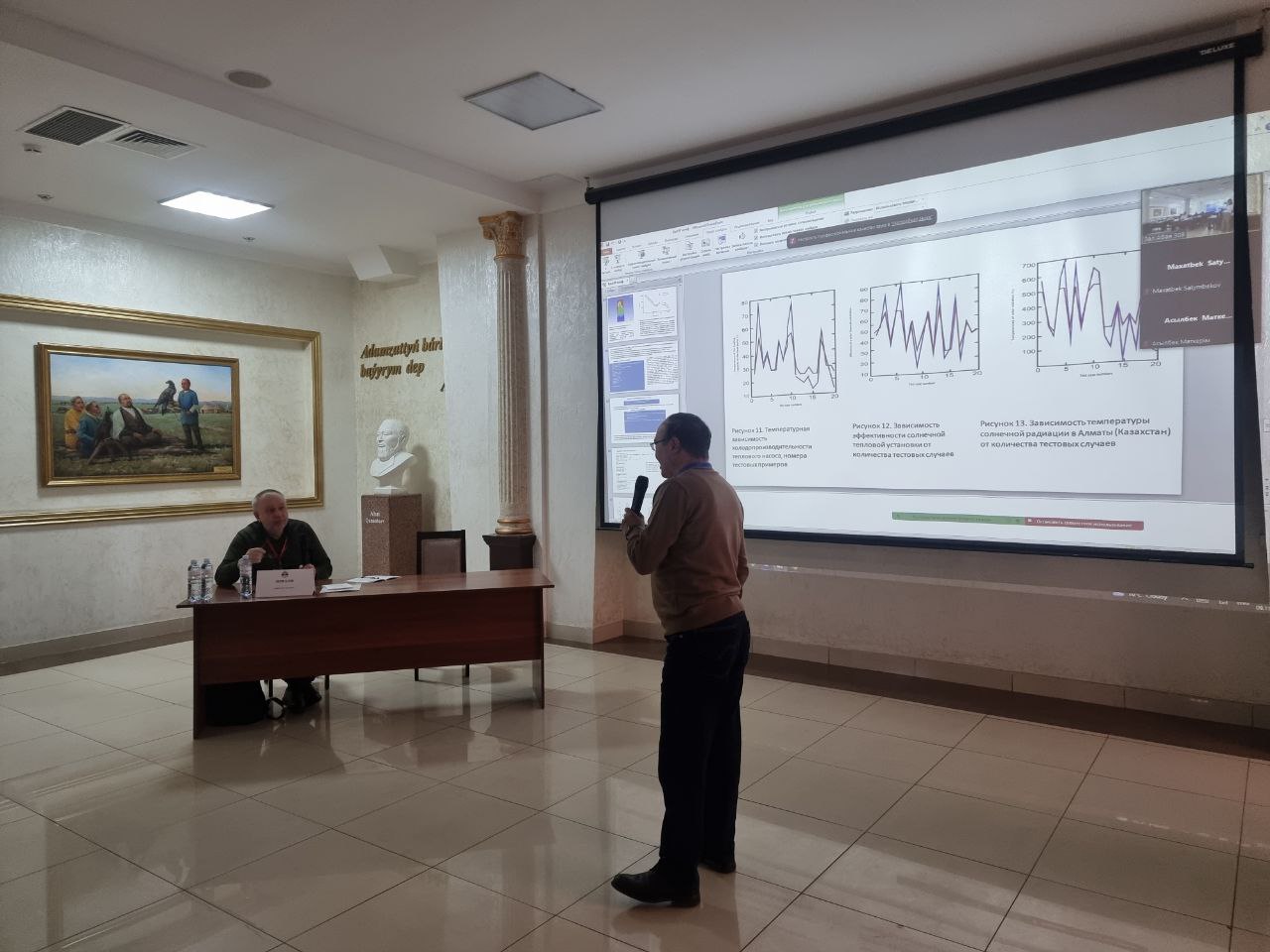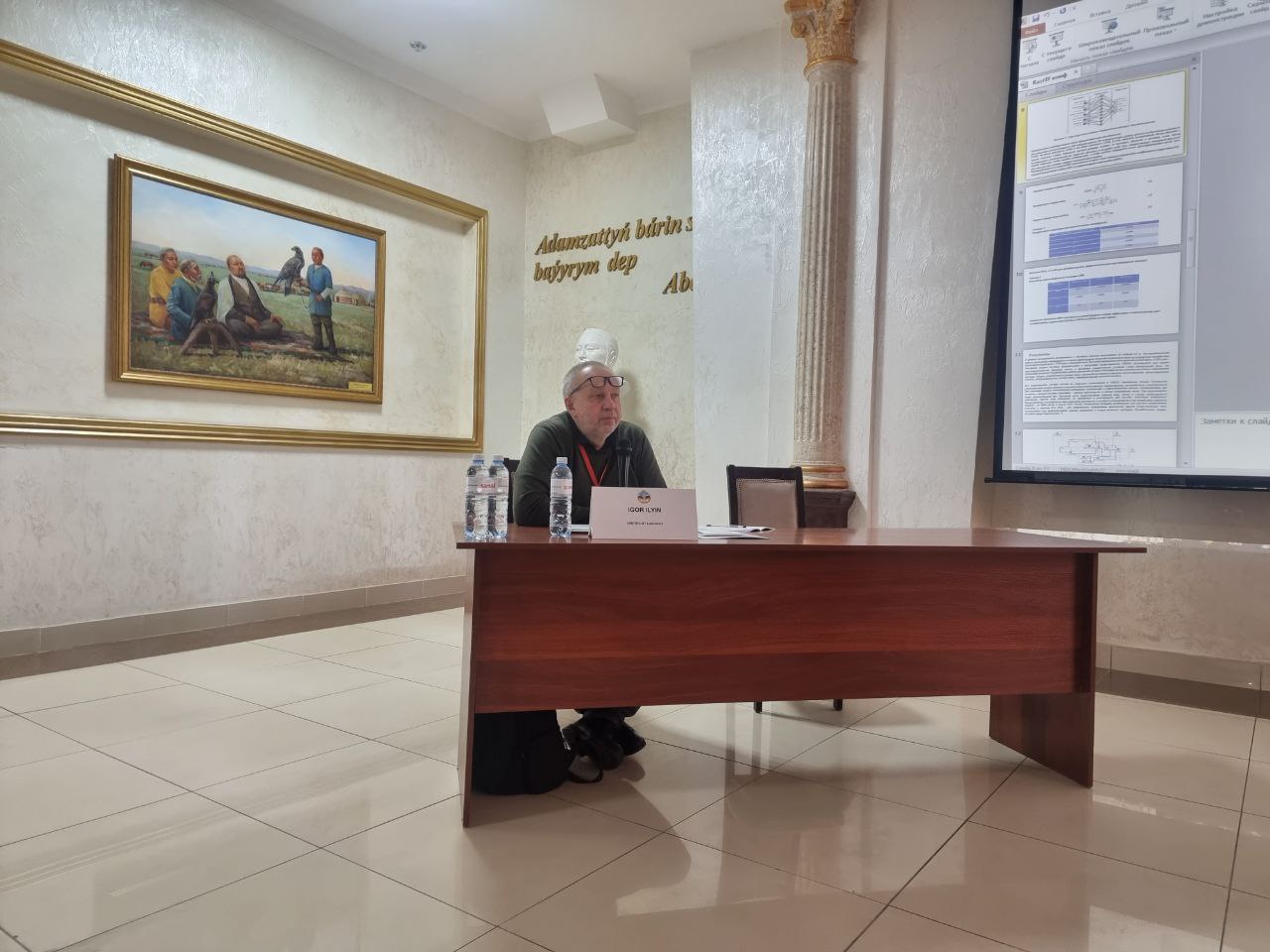The results of the section «Information Technologies and Digital Support Model System for Energy Transition Management» were summarized

Head of the CIRETEC-GT laboratory, director of the Graduate School of Business Engineering, St. Petersburg Polytechnic University, Doctor of Economics, prof. Ilyin I.V. acted as a moderator of the section «Information technologies and a system of digital support models for managing the energy transition» at the KZGT-2023 conference (November 8−10, 2023, Almaty). Representatives of the laboratory were one of the initiators of such a large-scale international event, designed to provide a platform for discussing various aspects of the ongoing energy transition.
Ilyin I.V.: “One of the key aspects of the global technological transition is to ensure effective interaction between the energy transition and digital transformation. This direction has been declared as a separate research task of the CIRETEC-GT laboratory for 2024. We and our colleagues already have significant developments on this issue and there is an urgent need to share experience, practical solutions and discuss the vision with colleagues. We are glad that we were able to organize a discussion on this issue within such a representative international platform as the conference “New Path to Decarbonization of the Economy” in Almaty.”
Researchers and business representatives from Russia, Kazakhstan, and Germany took part in the section “Information technologies and a system of digital support models for managing the energy transition” both in person and online. In their reports, the participants in the sectional meeting touched on all levels of implementation of IT and digital technologies in the energy sector - national, industry, enterprise level. Moderator Ilyin I.V. delivered a keynote speech on the topic “Digital transformation and energy transition: symbiosis and synergy of technological trends.” Representatives of the CIRETEC-GT laboratory Dubgorn A.S. and Levina A.I. outlined their vision of the role of digital technologies in ensuring the transition of industries and enterprises to a more energy-efficient model of activity, and showed the importance of an integrated approach to the design of modern energy systems. Colleagues from KazNU spoke about their applied solutions in terms of improving energy facilities using automated solutions. Representatives of IT companies presented their practical approaches to the digital transformation of enterprises in the energy sector.
Based on the results of the section, the following recommendations were developed:
1. The importance of an interdisciplinary approach and the involvement of cross-functional teams in the creation, development and modernization of energy systems, including the development of IT and digital support systems, was noted.
2. The key approach that ensures the integration of industry (energy), management, IT and digital technologies is enterprise architecture. This is an integrated approach that considers all the heterogeneous and interconnected subsystems of an enterprise (and other socio-economic systems) in a single model space, which ensures that the mutual requirements and services of these subsystems are taken into account when designing complex objects.
3. The increasing role of data collection and analysis systems and the construction of data-based power system management systems was noted. There has been an increasing demand for data analysis specialists in the energy sector.
4. An approach to the digital transformation of energy industry enterprises was proposed. With appropriate adaptation, this approach can form the basis of digital transformation roadmaps for specific enterprises and their associations. Such goal-setting and guiding documents - strategies and roadmaps for digital transformation - should become an integral part of the strategic complex of modern energy enterprises.
5. Key IT and digital technology trends in the industry have been identified that should be addressed by both researchers and businesses:
- smart grids
- digital twins
- data analysis
- artificial intelligence
- ensuring cybersecurity of critical infrastructure facilities
6. The exchange of research results allowed specialists in the field of IT and digital solutions in the energy sector to look at the problems being solved from different angles. The importance of international cooperation was stated, including writing joint publications and conducting joint research in the development of approaches to digital transformation and the design of individual solutions to improve the efficiency of energy systems using digital solutions and operating technologies.



![$news['icon']](https://greenlab.spbstu.ru/userfiles/files/dfjhfhsdhfsl.png)
![$news['icon']](https://greenlab.spbstu.ru/userfiles/files/photo_2024-10-29_11-33-32.jpg)